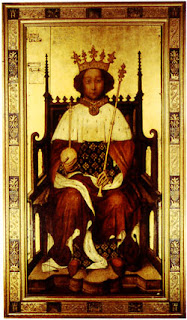 |
| Alexander Ristov as Flute and Tom Morin as Bottom, A Midsummer Night's Dream, 2011. |
Auditions for the 2012 season will be held in NYC in early November. We are now accepting headshot and resume submissions, as well as video auditions, for the 2012 season.
SUBMISSION GUIDELINES
You may submit a headshot and resume via email to casting@adkshakes.org. Please submit with “2012 Auditions” and your name in the subject line of the email. Headshots and resumes are best submitted as photo and document attachments (.JPG, .PDF, .TIF, .DOC or .DOCX files are accepted). You may include a link to a professional website, in addition to the attached files. Email submissions without attached files will not be considered.
We will begin contacting actors for in-person audition appointments in mid-October. Audition appointments are offered in one-hour blocks and must be confirmed in advance. The auditions are held in groups of 8-10 actors. Actors will present a prepared monologue (classical verse only) and will also read sides from the season. These are intended to be cold readings, but a complete selection of sides will be posted on the website in advance for your perusal.*
Due to a high volume of submissions, we are unable to schedule in-person auditions for every actor. If we are unable to schedule you for an audition, we strongly urge you to consider submitting a video audition (see requirements below). If you plan to submit a video, please contact the Casting Director at casting@adkshakes.org with a request for sides, which may be included in your video.
*If you require additional time to prepare specific sides due to a learning disability or other need, please contact the Casting Director at casting@adkshakes.org and your request will be considered.
Our 2012 Casting Call is for:
The Justice Project: The Merchant of Venice and Measure for Measure
(February, 2012 at St. John’s University, NYC)
Please note, some roles in this project are already cast. Actors will be cast in both shows and perform in repertory over two weekends in Queens and Manhattan. All roles are paid.
The Summer Festival Season: Hamlet, Rosencrantz and Guildenstern are Dead, Twelfth Night, and an original children’s production of Hercules
The Summer Festival Season: Hamlet, Rosencrantz and Guildenstern are Dead, Twelfth Night, and an original children’s production of Hercules
(Scheduled for July - August, 2012 in the Adirondack Mountains, NY)
Seeking a company of 12 actors. Actors will perform in repertory over a period of three to five weeks. Housing is provided. We are also seeking a Production Stage Manager and an Assistant Stage Manager. All positions are paid.
More information on video submissions is available on our website. Also please note, we are dedicated to seeing as many new actors as possible during our limited audition time. Due to the nature of our hour-long group sessions, we can only see a small number of people, and we prefer to schedule auditions for actors whose work we don't know. So if you have worked with ADK Shakes in the past and would like to be considered on your past work with the company, please send an email to casting@adkshakes.org and let us know of your interest.
More information on video submissions is available on our website. Also please note, we are dedicated to seeing as many new actors as possible during our limited audition time. Due to the nature of our hour-long group sessions, we can only see a small number of people, and we prefer to schedule auditions for actors whose work we don't know. So if you have worked with ADK Shakes in the past and would like to be considered on your past work with the company, please send an email to casting@adkshakes.org and let us know of your interest.


